
AlphaLISA Human CD276 Detection Kit, 5,000 Assay Points
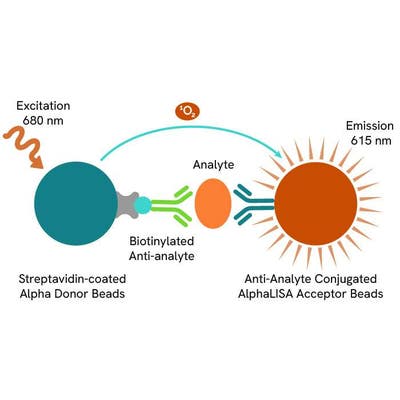

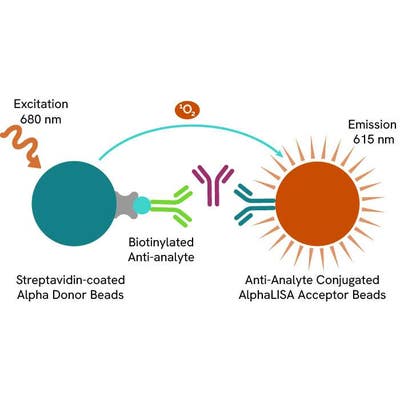 View All
View All
AlphaLISA Human CD276 Detection Kit, 5,000 Assay Points
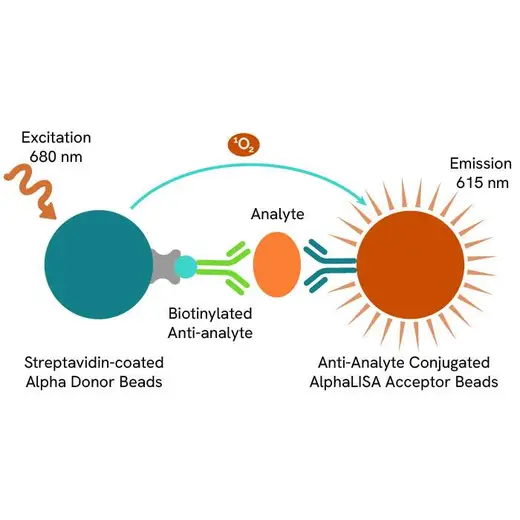

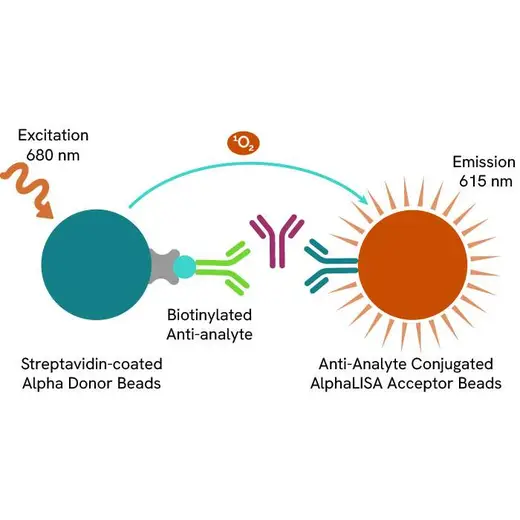




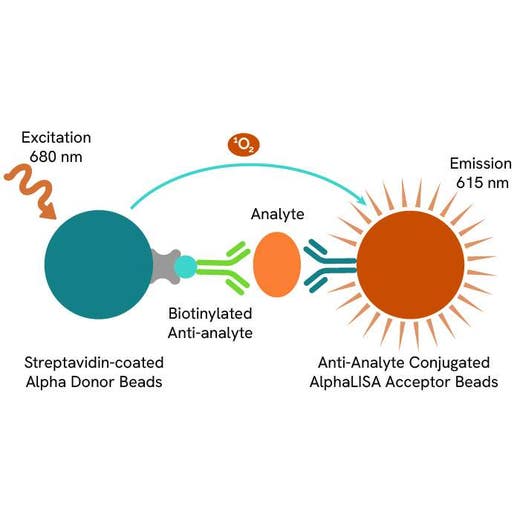

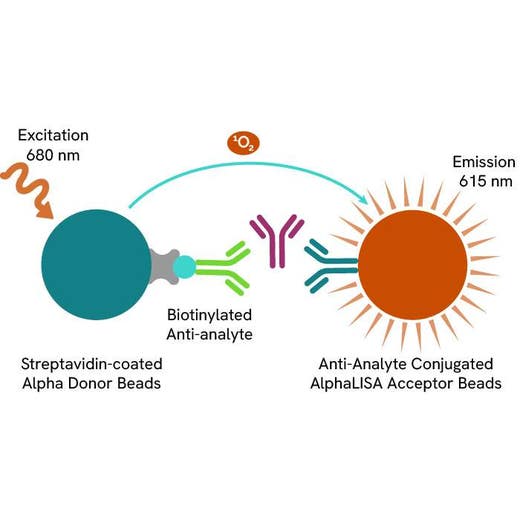




The AlphaLISA™ immunoassay kit for human CD276 enables the quantitative determination of human Cluster of Differentiation 276 (CD276, B7-H3) in serum, buffered solution, and cell culture media using a homogeneous AlphaLISA assay (no wash steps).
For research use only. Not for use in diagnostic procedures. All products to be used in accordance with applicable laws and regulations including without limitation, consumption and disposal requirements under European REACH regulations (EC 1907/2006).
| Feature | Specification |
|---|---|
| Application | Protein Quantification |
| Dynamic Range | 42 - 100,000 pg/mL |
| Limit of Detection | 42 pg/mL |
| Limit of Quantification | 104 pg/mL |
| Sample Volume | 5 µL |
The AlphaLISA™ immunoassay kit for human CD276 enables the quantitative determination of human Cluster of Differentiation 276 (CD276, B7-H3) in serum, buffered solution, and cell culture media using a homogeneous AlphaLISA assay (no wash steps).
For research use only. Not for use in diagnostic procedures. All products to be used in accordance with applicable laws and regulations including without limitation, consumption and disposal requirements under European REACH regulations (EC 1907/2006).







AlphaLISA Human CD276 Detection Kit, 5,000 Assay Points







AlphaLISA Human CD276 Detection Kit, 5,000 Assay Points







Product information
Overview
Formats:
- Our 100 assay point kit allows you to run 100 wells in 96-well format, using a 100 µL reaction volume (10 µL of sample).
- Our 500 assay point kit allows you to run 500 wells in 96-well or 384-well format, using a 50 µL reaction volume (5 µL of sample).
- Our 5,000 assay point kit allows you to run 5,000 wells in 96-well or 384-well format, using a 50 µL reaction volume (5 µL of sample).
Features:
- No-wash steps, no separation steps
- ELISA alternative technology
- Sensitive detection
- Broad sample compatibility
- Small sample volume
- Results in less than 3 hours
- Half the time of an ELISA assay
AlphaLISA technology allows the detection of molecules of interest in buffer, cell culture media, serum and plasma in a highly sensitive, quantitative, reproducible and user-friendly mode. In an AlphaLISA assay, a Biotinylated Anti-Analyte Antibody binds to the Streptavidin-coated Alpha Donor beads, while another Anti-Analyte Antibody is conjugated to AlphaLISA Acceptor beads. In the presence of the analyte, the beads come into close proximity. The excitation of the Donor beads provokes the release of singlet oxygen molecules that triggers a cascade of energy transfer in the Acceptor beads, resulting in a sharp peak of light emission at 615 nm.
CD276 (Cluster of Differentiation 276, or B7-H3) is a type I transmembrane protein belonging to the B7 family of co-stimulatory proteins (e.g., B7-1, or CD80). It signals through CD28 family molecules such as CD28 and CTLA4. It is expressed ubiquitously, such as dendritic cells derived from monocytes, epithelial cells of sinonasal tissue, extravillous trophoblast cells and Hofbauer cells of the placenta. It is an immune checkpoint molecule, involved in the regulation of T-cell-mediated immune response. It is expressed by some solid tumours, as a biomarker for detection of neuroblastoma cells and is the target of anticancer therapy.
Specifications
| Application |
Protein Quantification
|
|---|---|
| Automation Compatible |
Yes
|
| Brand |
AlphaLISA
|
| Detection Modality |
Alpha
|
| Dynamic Range |
42 - 100,000 pg/mL
|
| Limit of Detection |
42 pg/mL
|
| Limit of Quantification |
104 pg/mL
|
| Product Group |
Kit
|
| Sample Volume |
5 µL
|
| Shipping Conditions |
Shipped in Blue Ice
|
| Target |
CD276
|
| Target Class |
Biomarkers
|
| Target Species |
Human
|
| Technology |
Alpha
|
| Therapeutic Area |
Oncology
|
| Unit Size |
5,000 Assay Points
|
Image gallery






AlphaLISA Human CD276 Detection Kit, 5,000 Assay Points






AlphaLISA Human CD276 Detection Kit, 5,000 Assay Points






Video gallery

AlphaLISA Human CD276 Detection Kit, 5,000 Assay Points

AlphaLISA Human CD276 Detection Kit, 5,000 Assay Points

Resources
Are you looking for resources, click on the resource type to explore further.
Membrane proteins, which are key in cellular signaling and often serve as disease biomarkers, are a significant focus in research...
Advance your autoimmune disease research and benefit from Revvity broad offering of reagent technologies


How can we help you?
We are here to answer your questions.






























